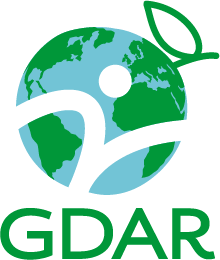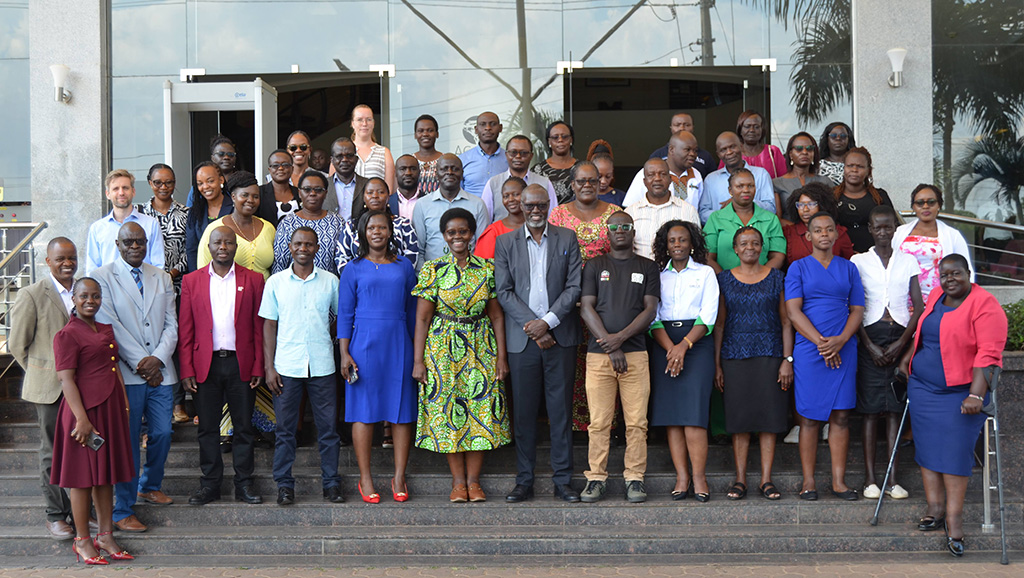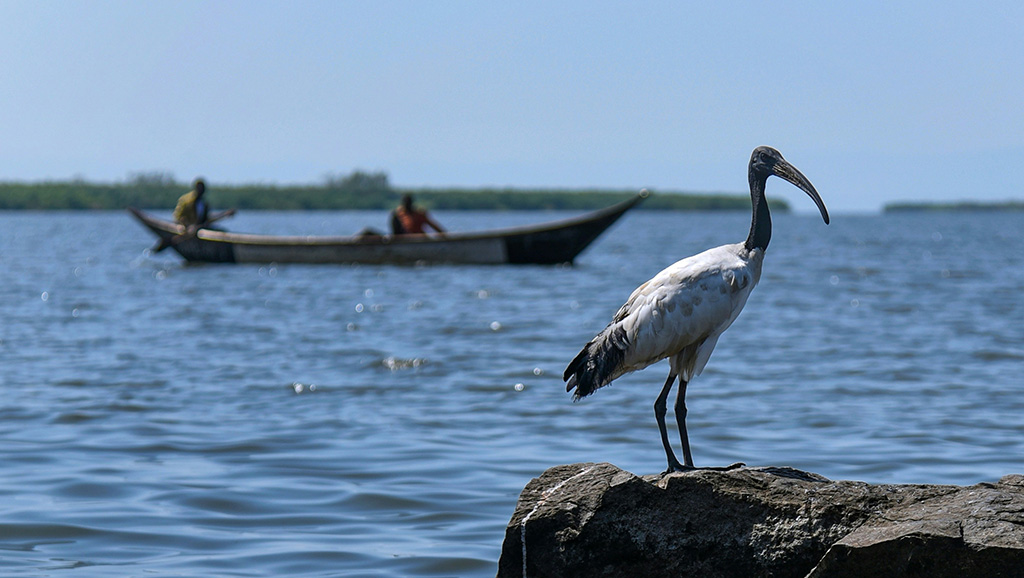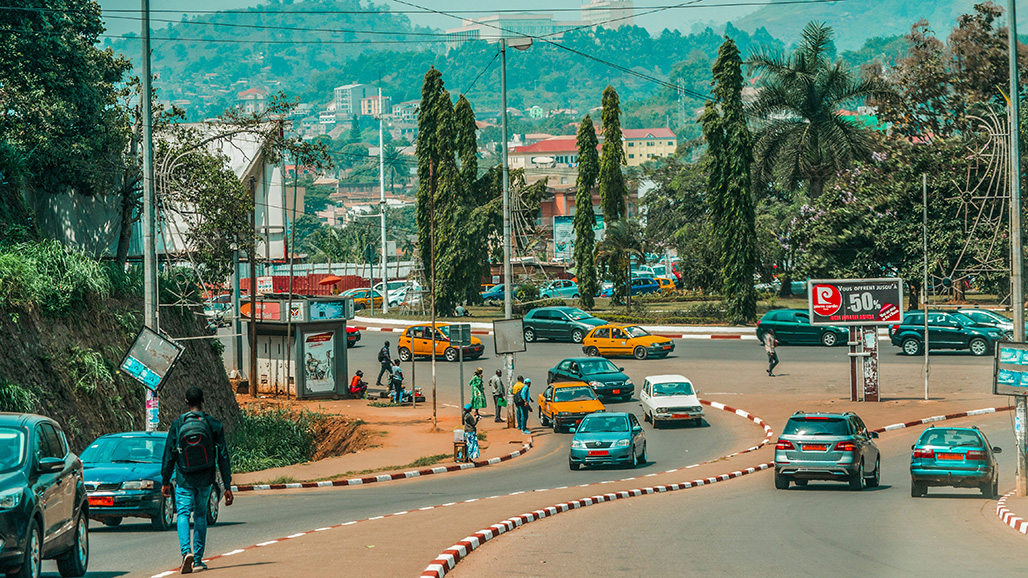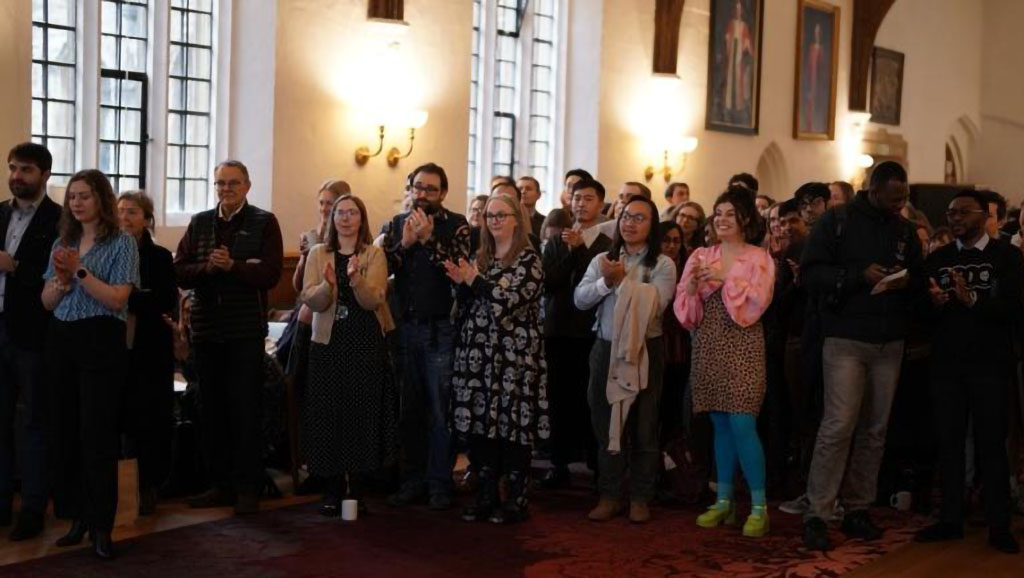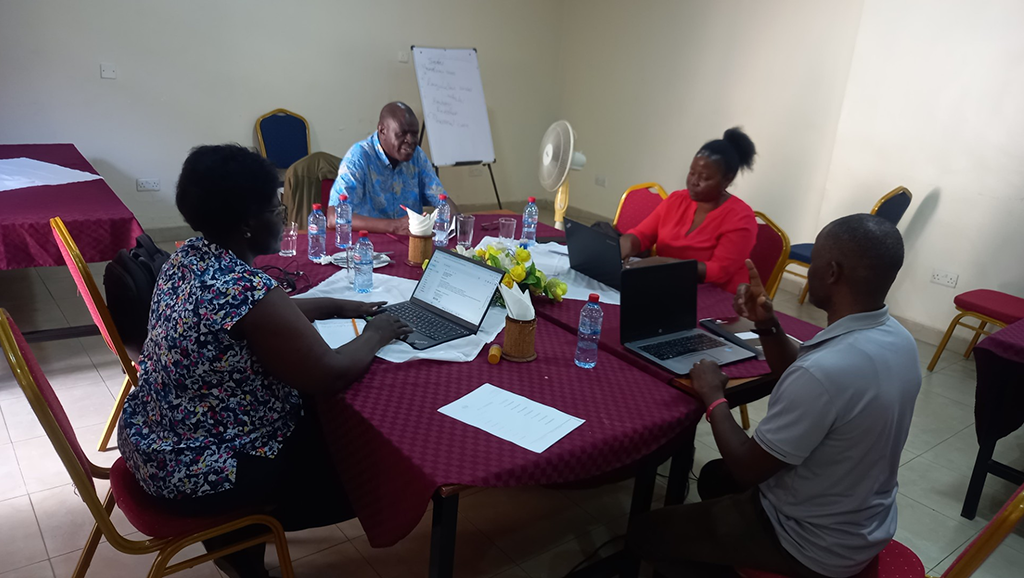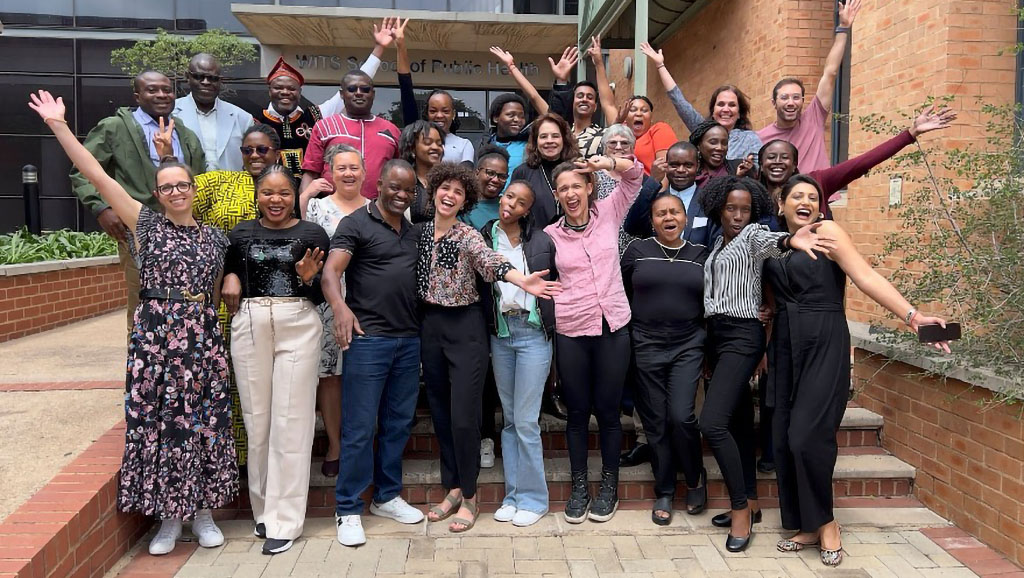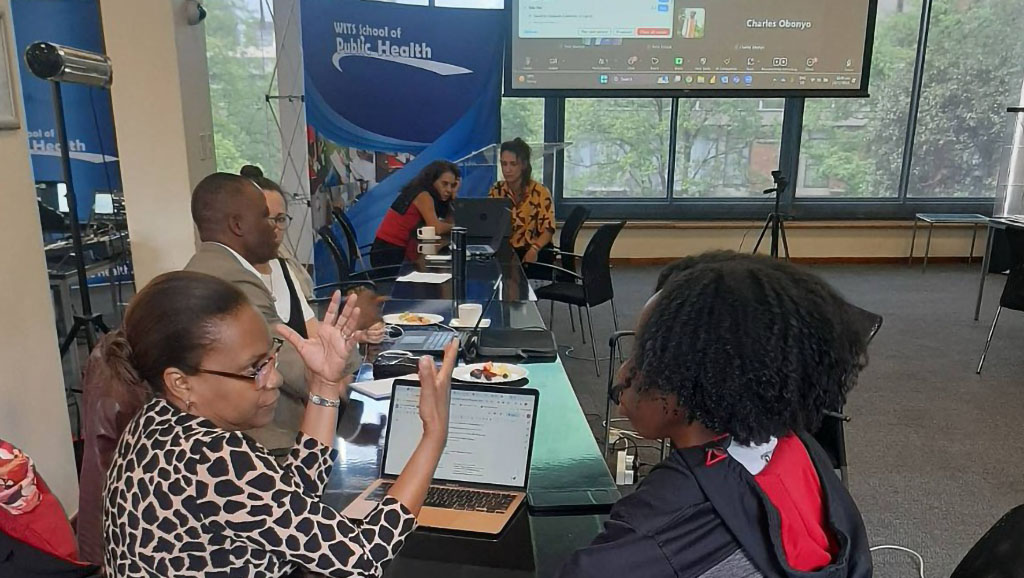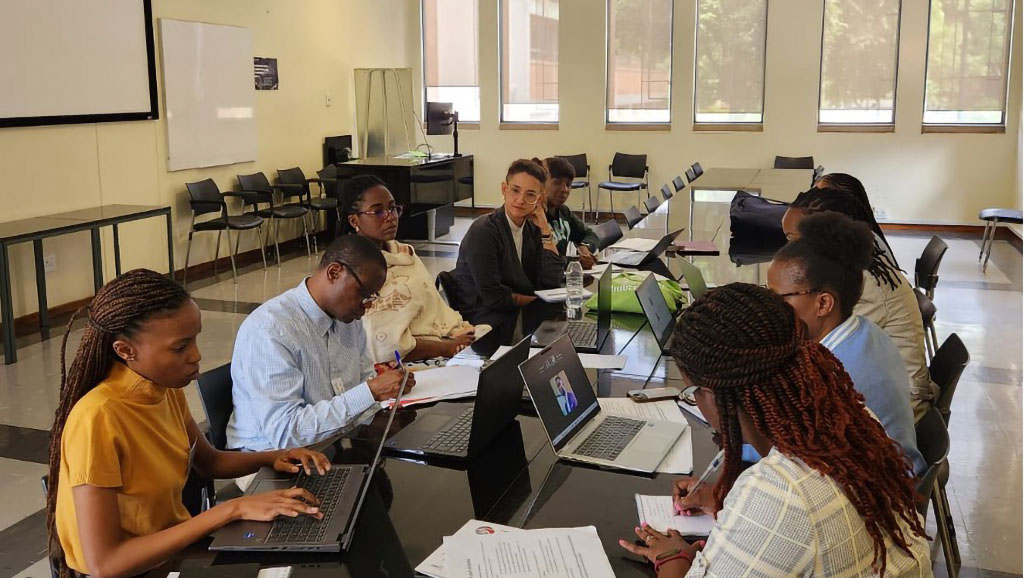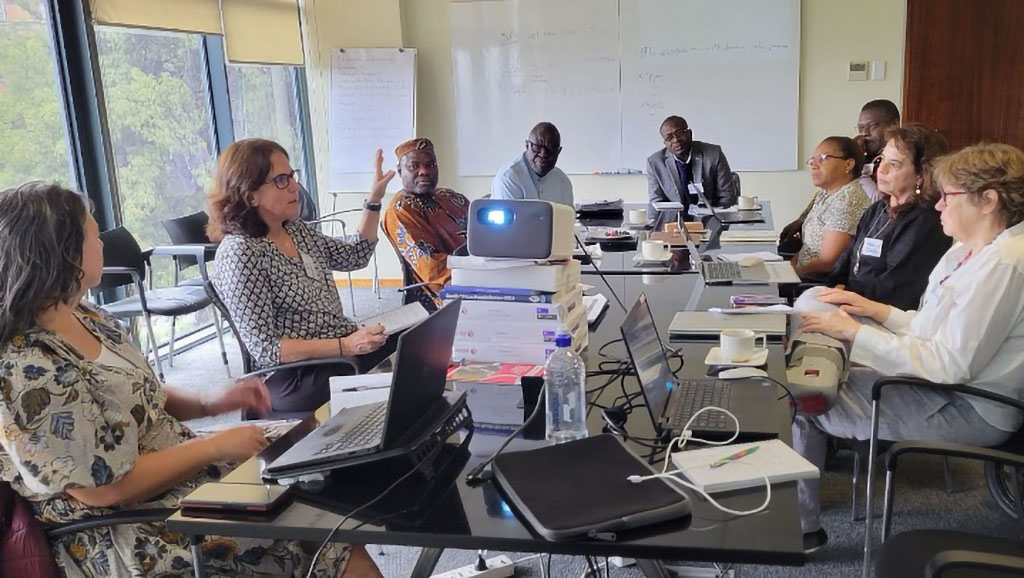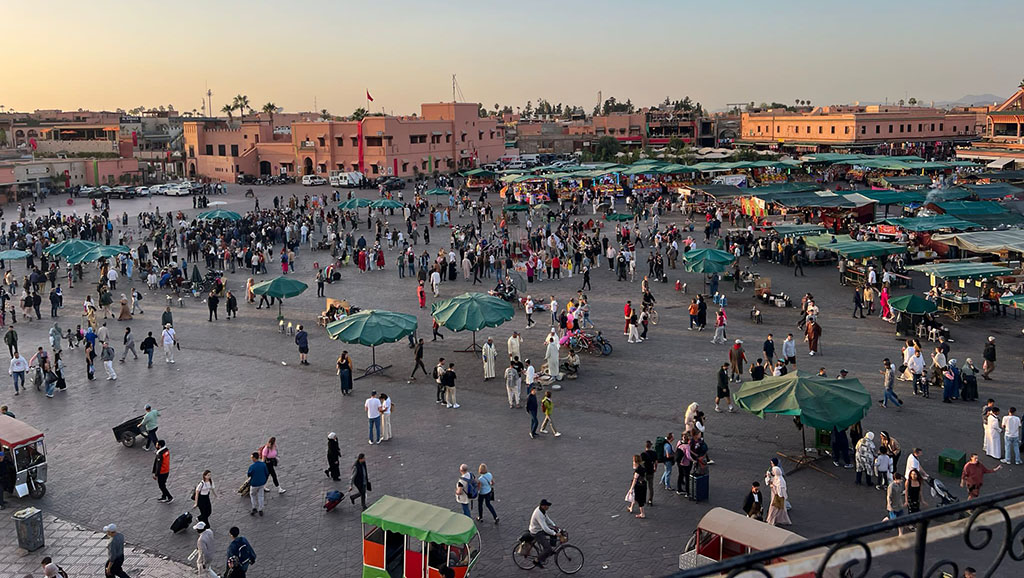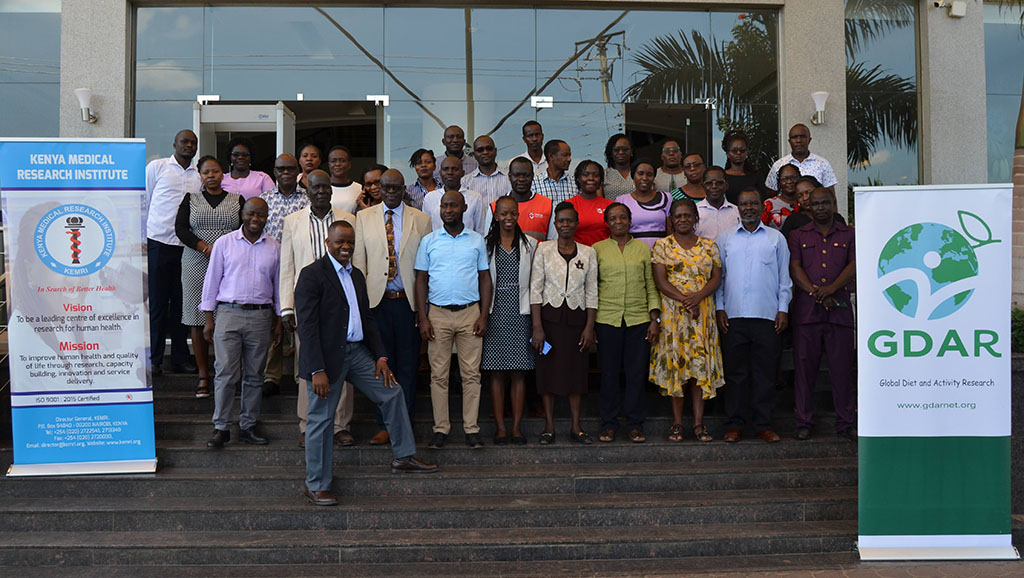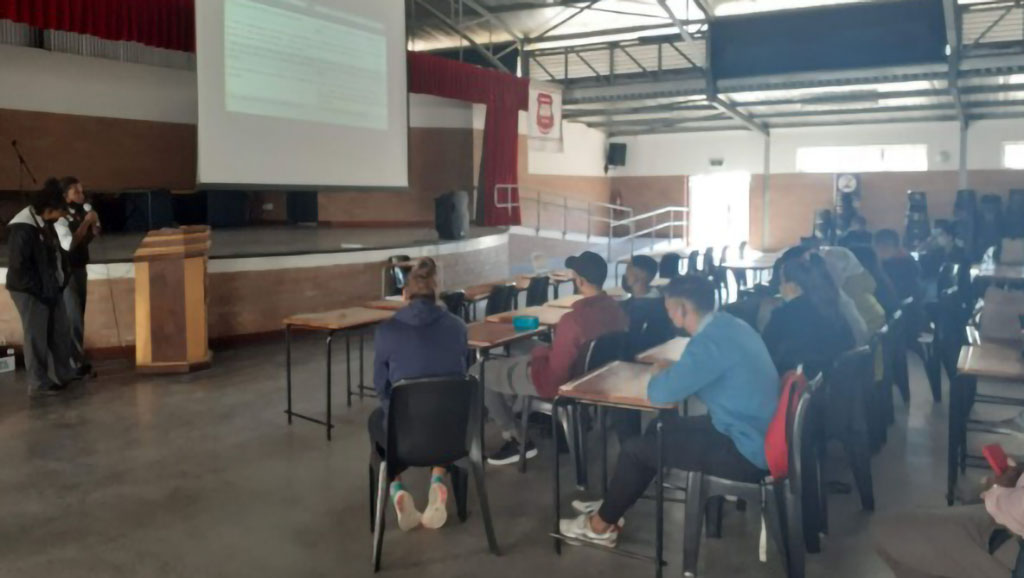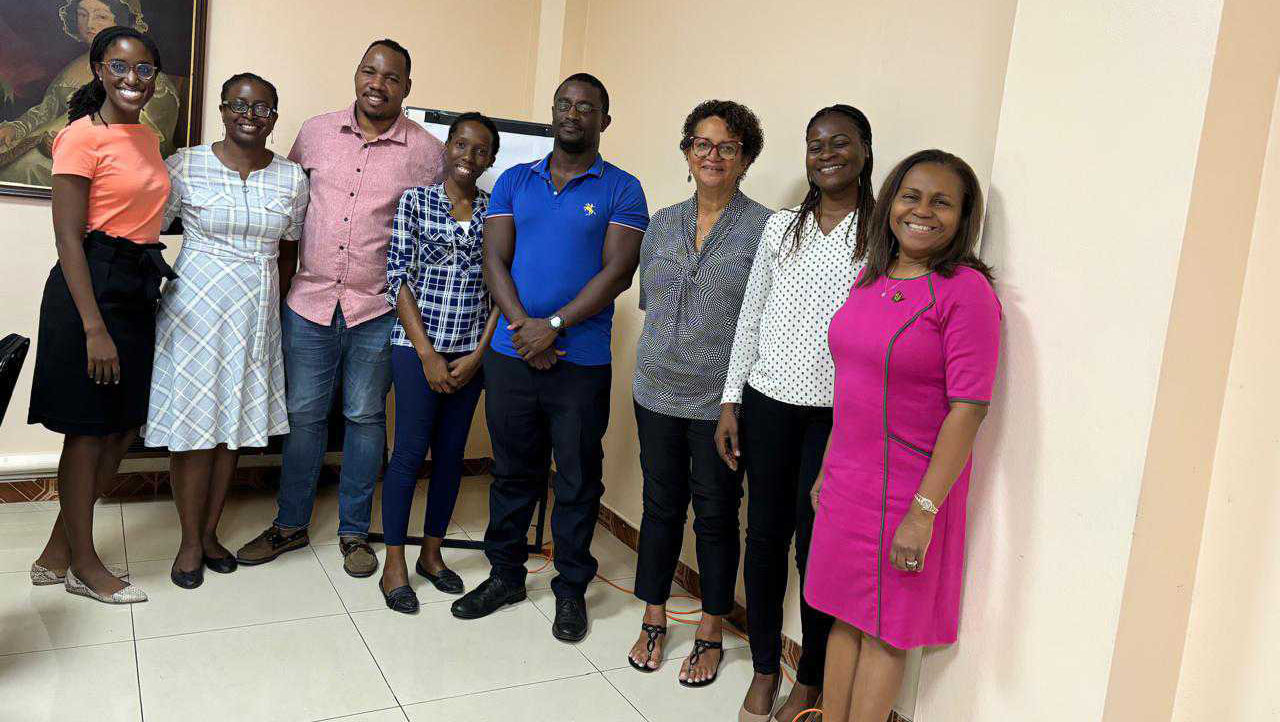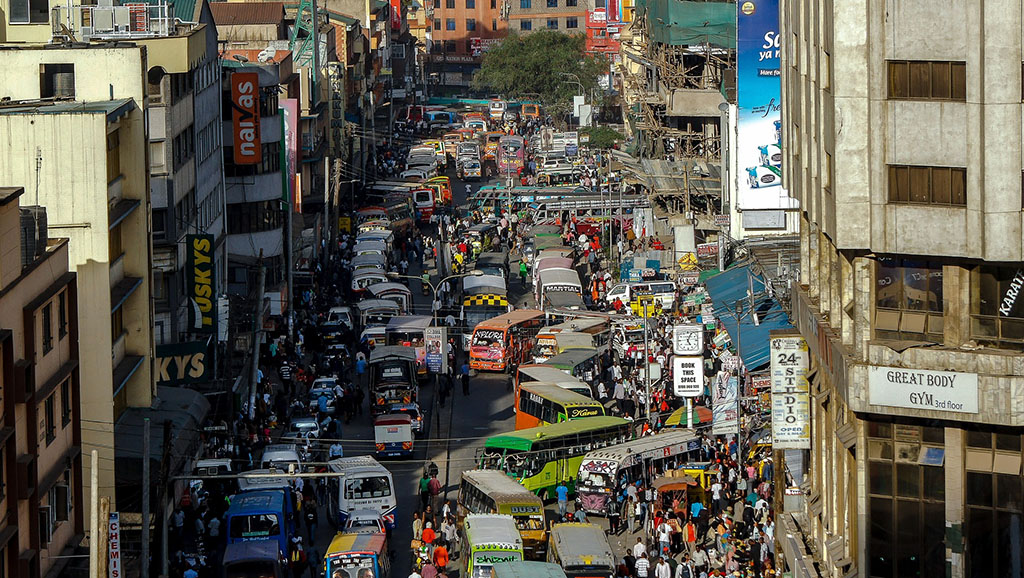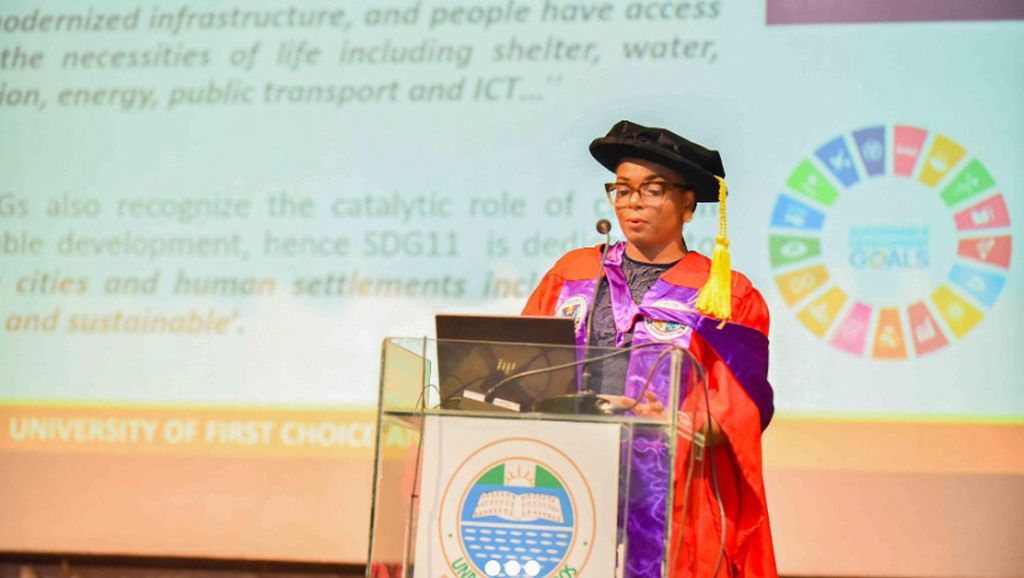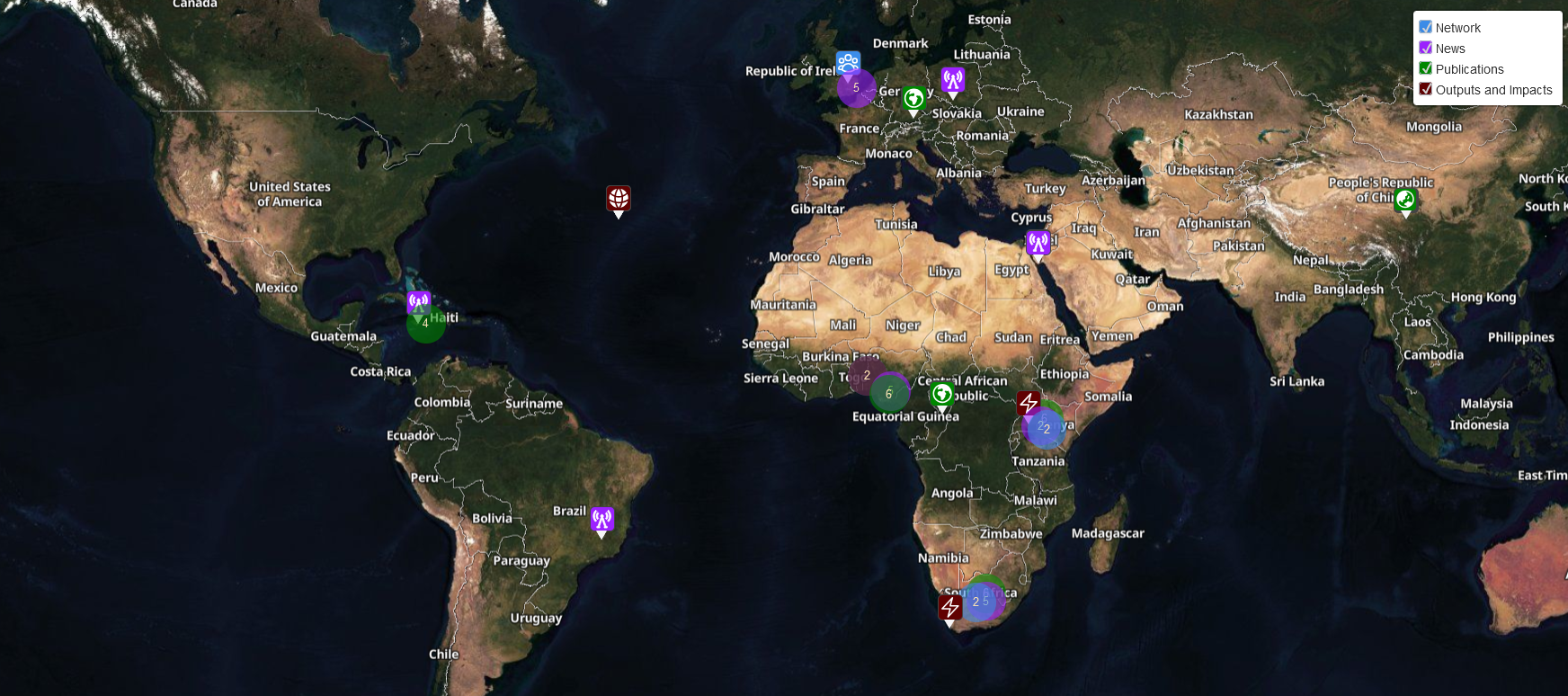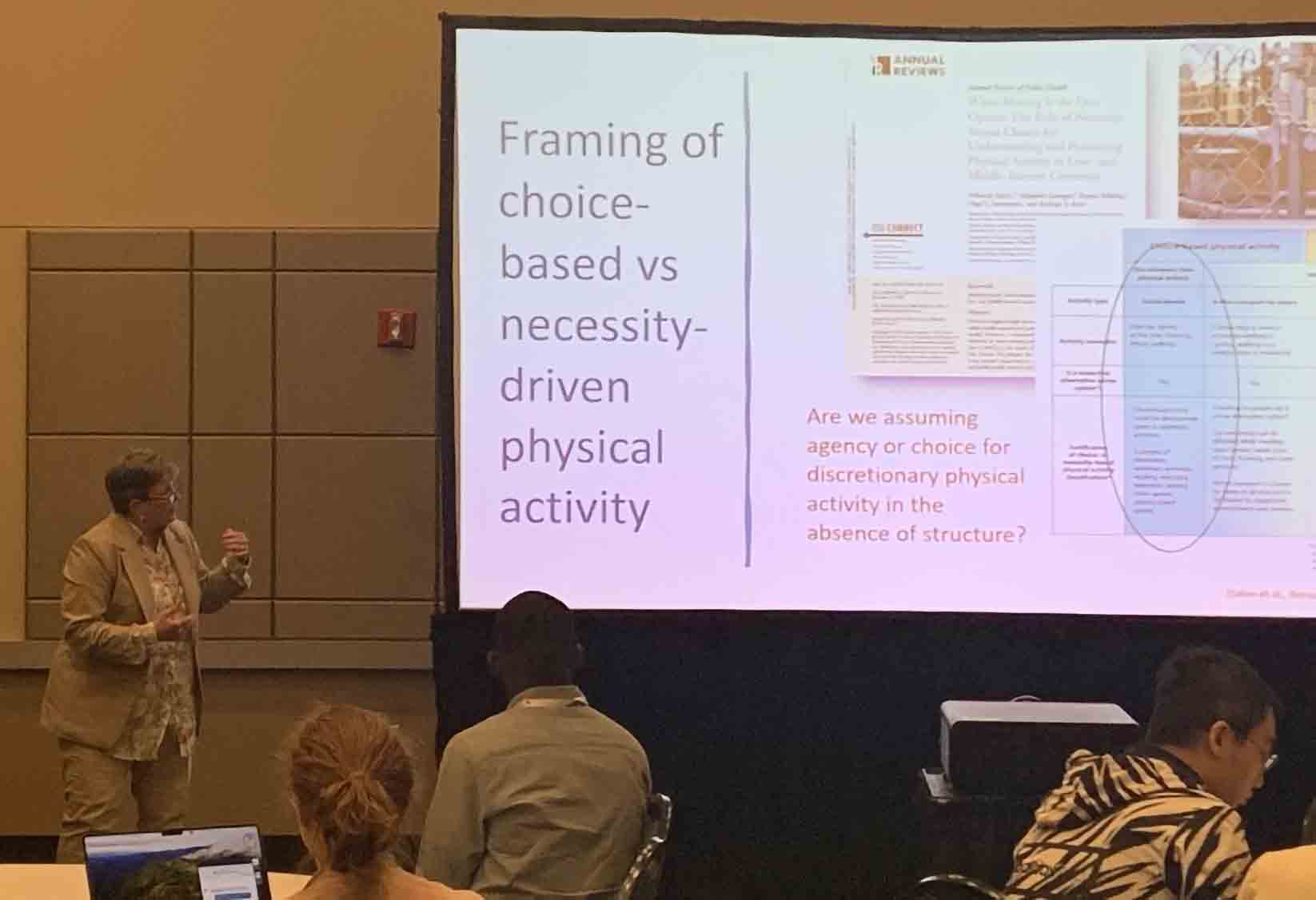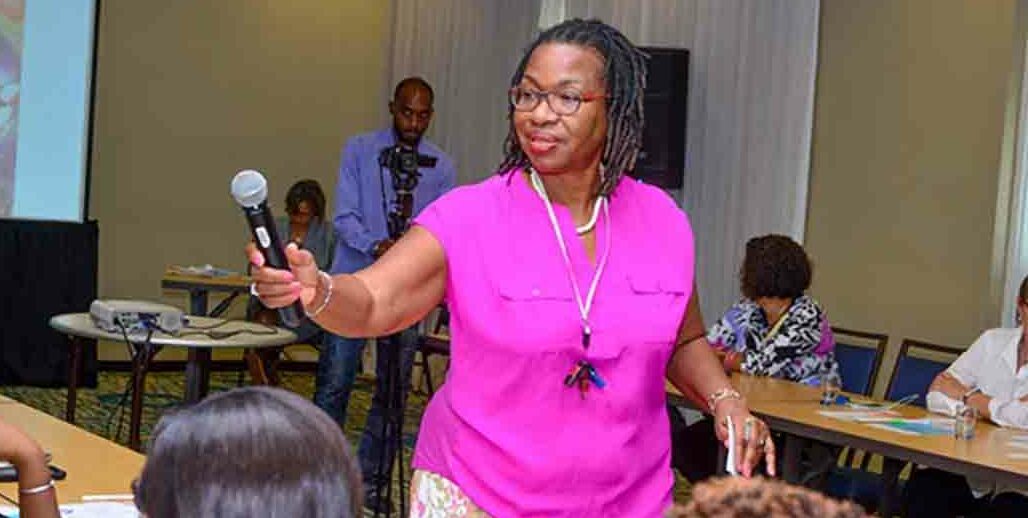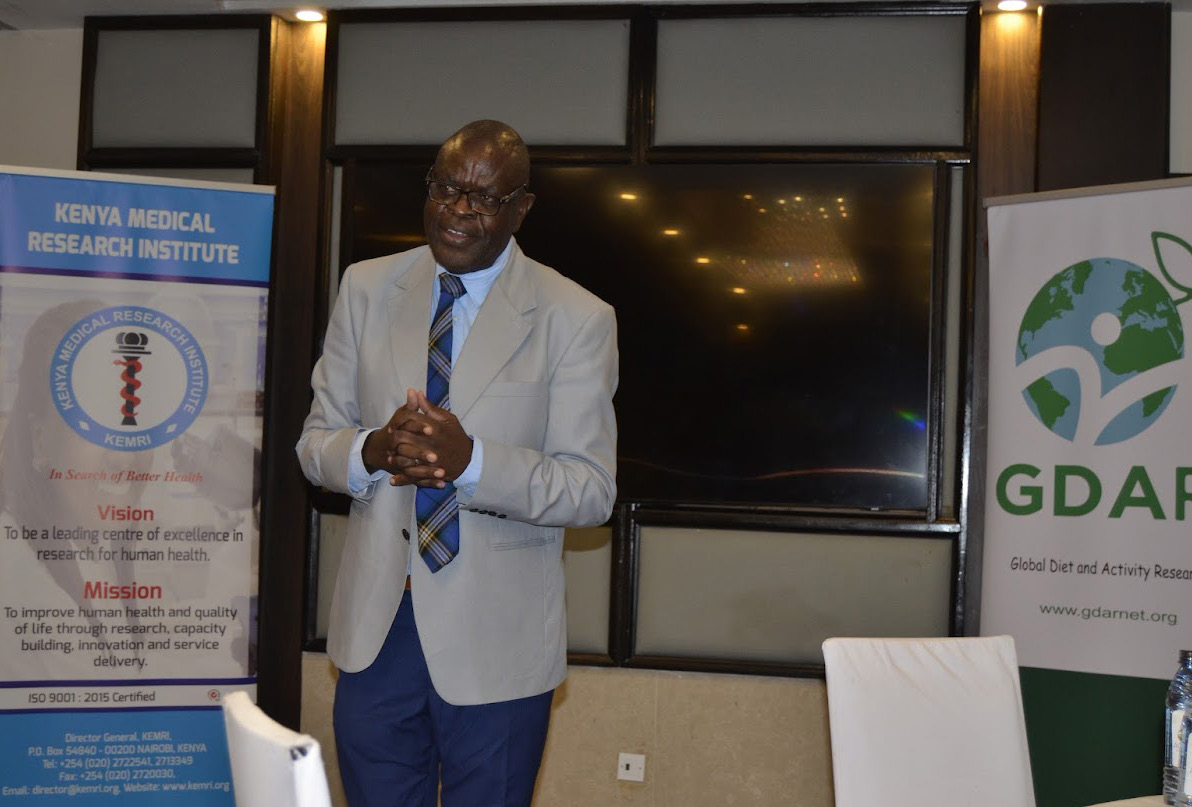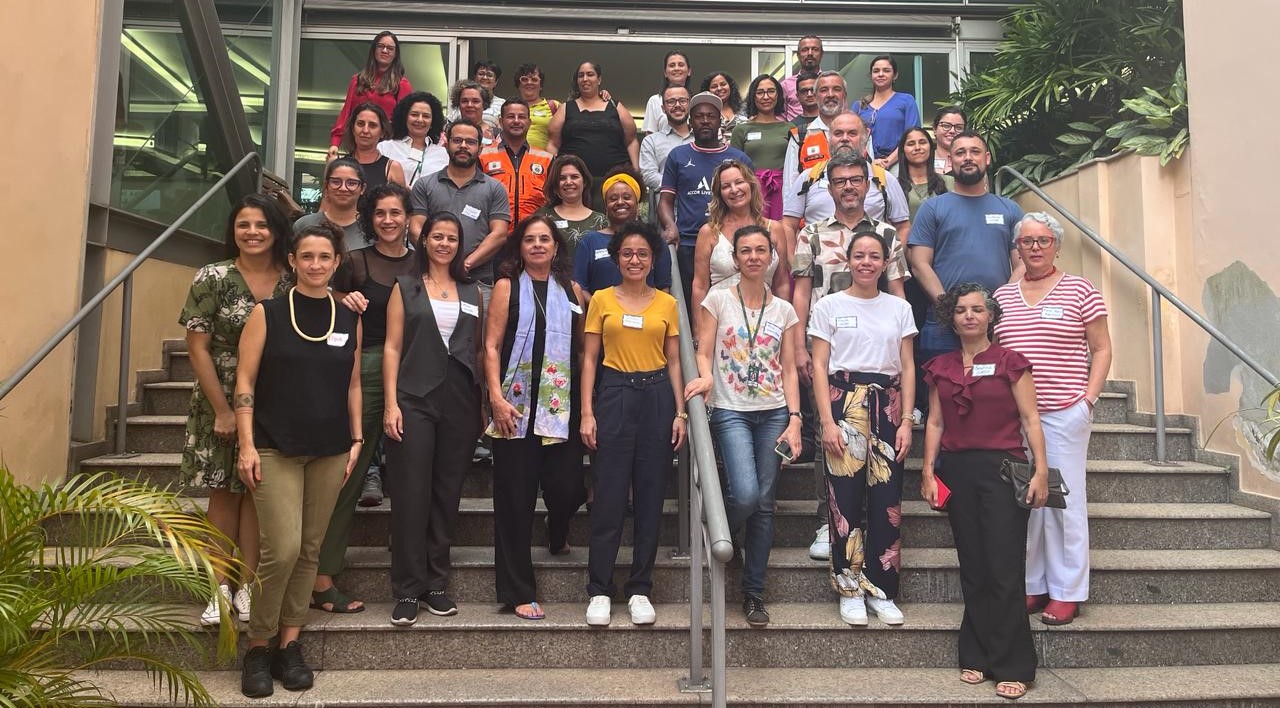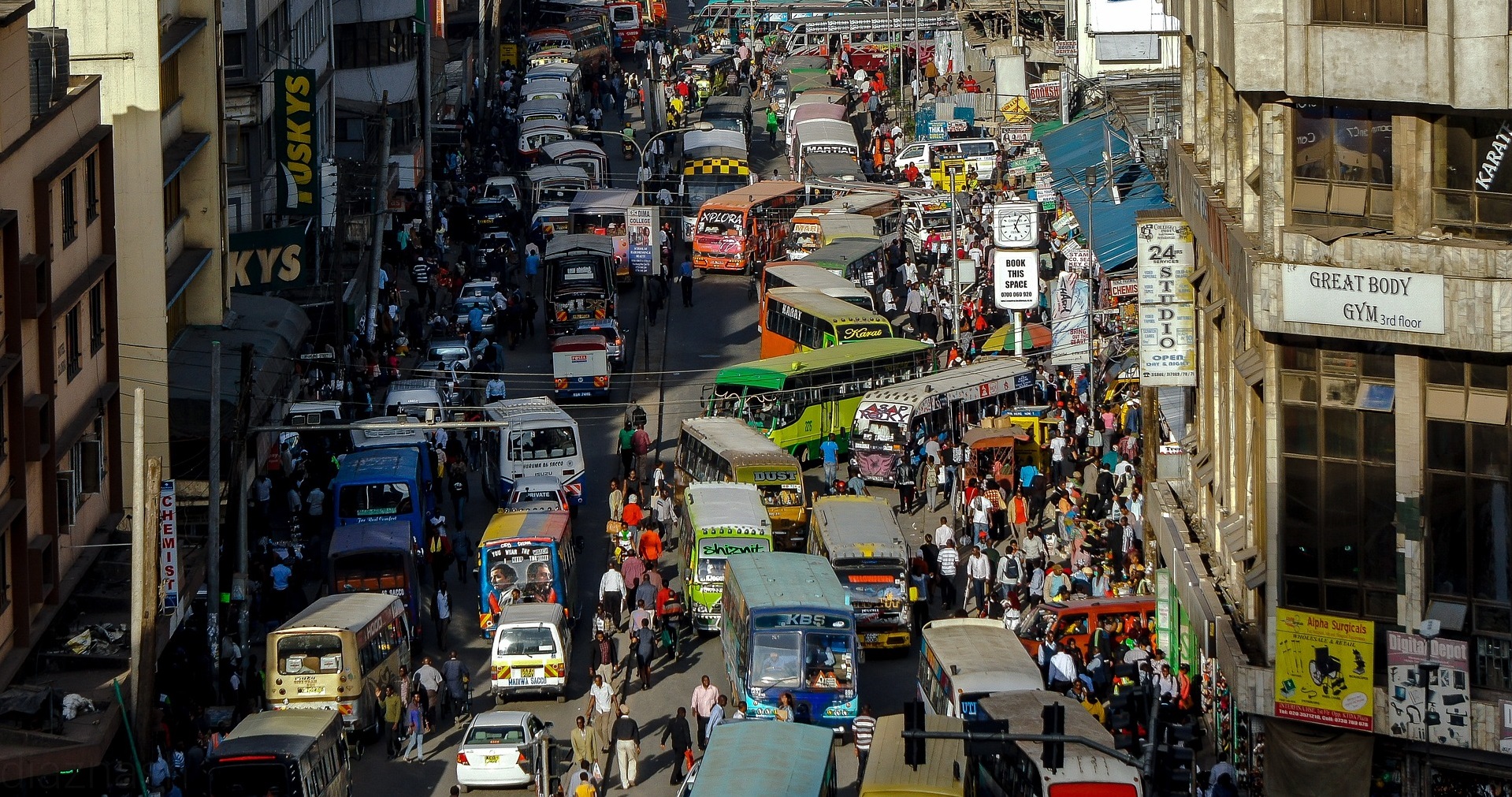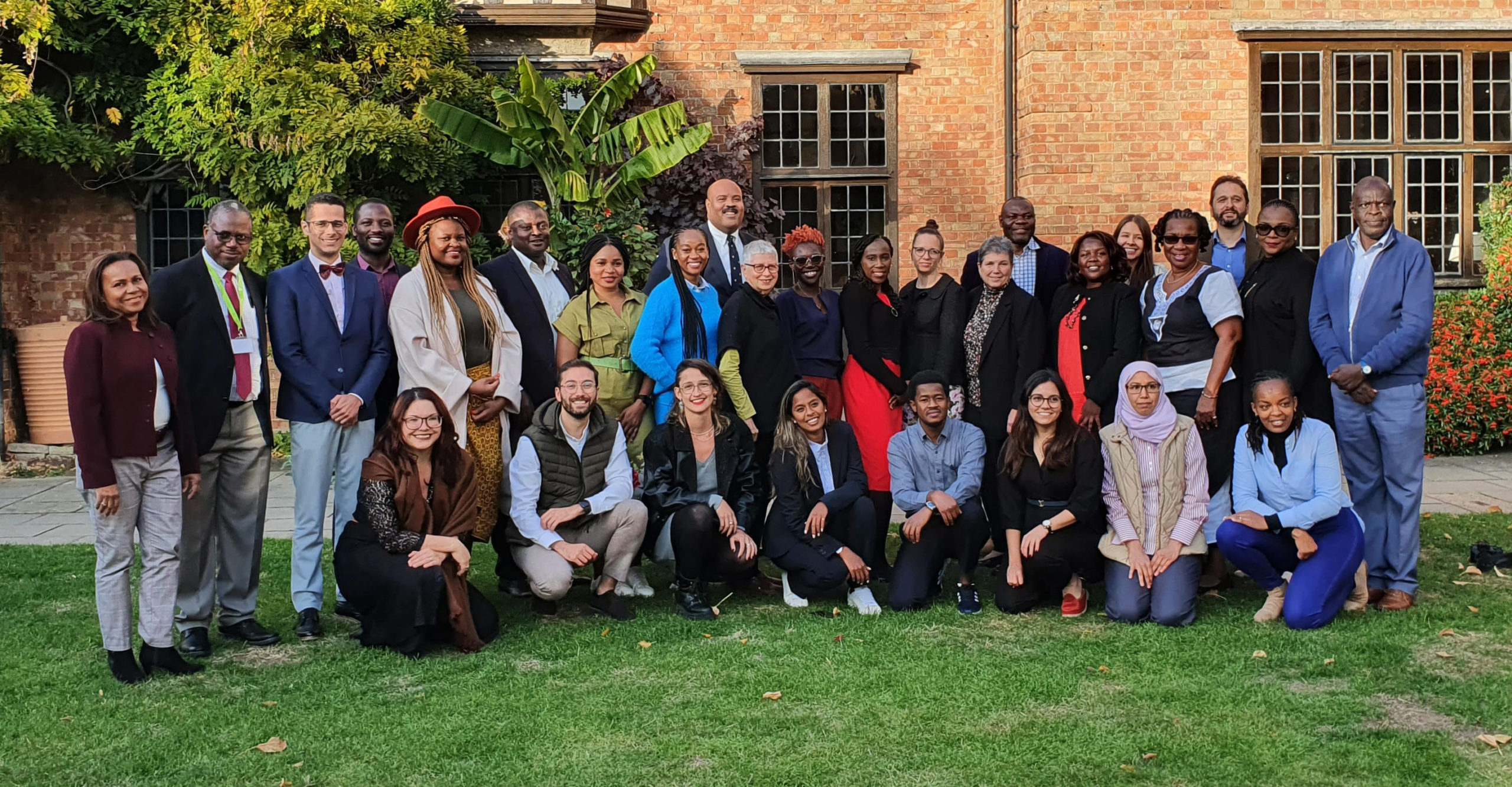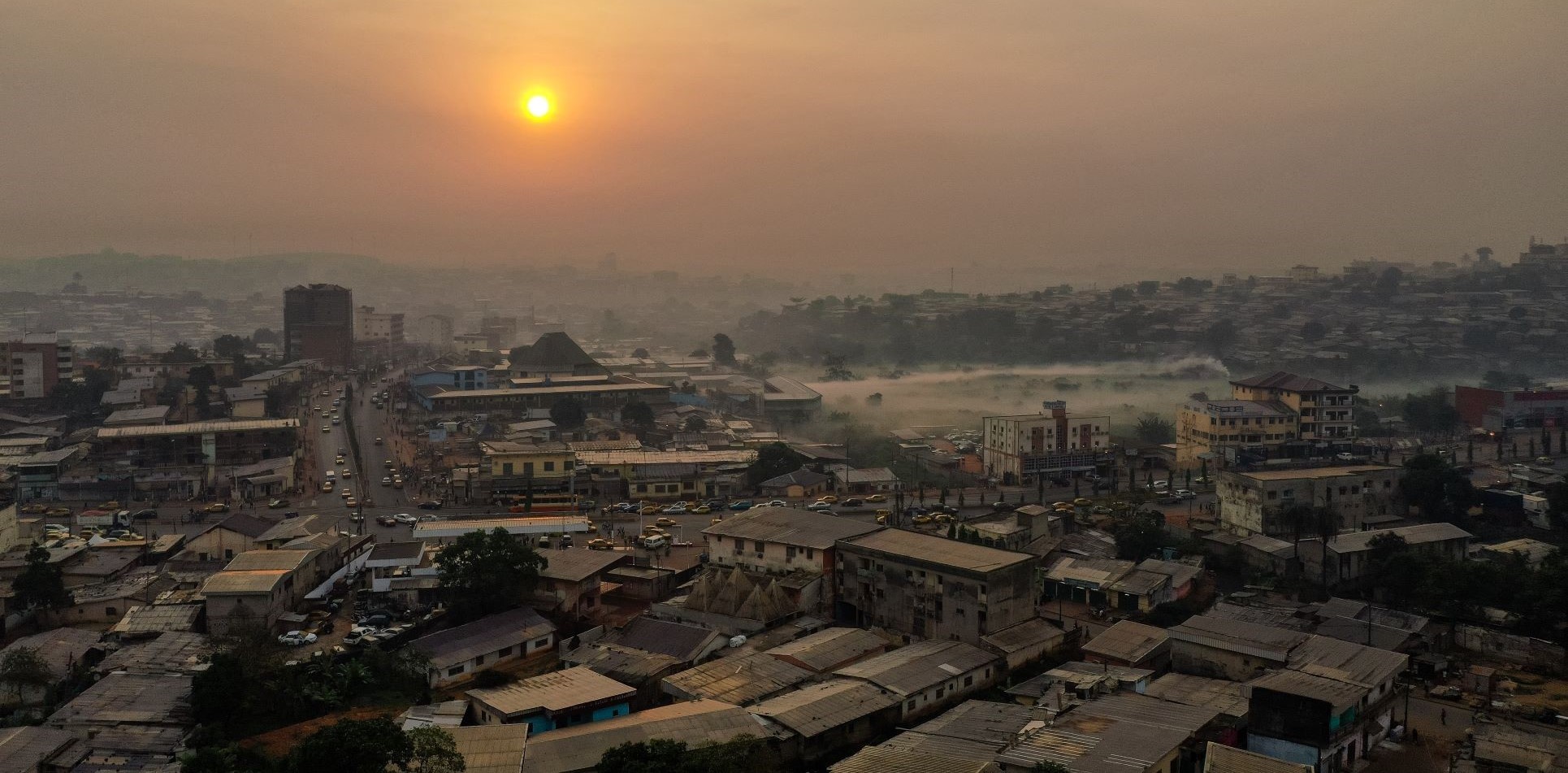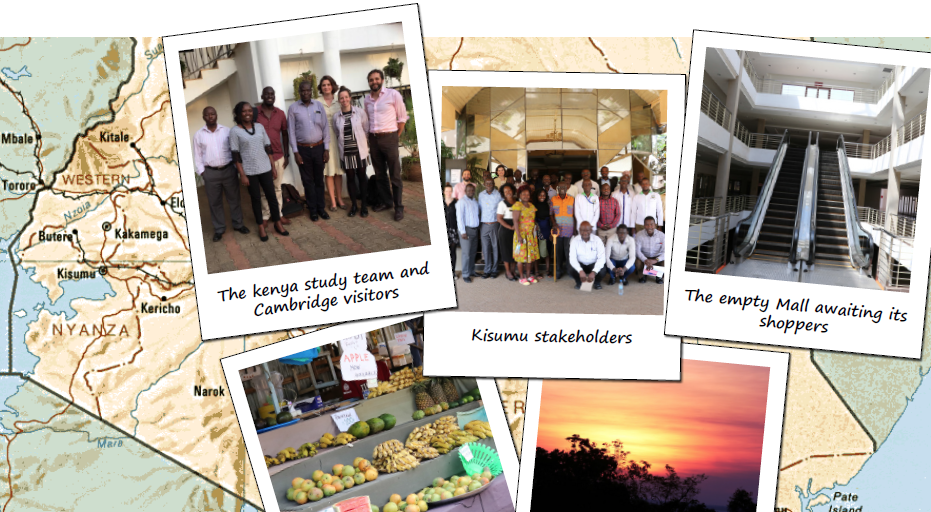For media enquiries, please contact:
The MRC Epidemiology Unit Communications Team
www.mrc-epid.cam.ac.uk/news/communications-team/
comms@mrc-epid.cam.ac.uk
Follow us on Twitter: @gdarnetwork
Follow us on LinkedIn: https://www.linkedin.com/company/gdar-network
GDAR reflections
Professor Tolu Oni, Director, GDAR Network As GDARSpaces comes to a close after eight years of collaborative research, I find myself reflecting on what this journey has meant, for the…
Eight years of GDAR Research
This report summarises the key findings, messages, and lessons learned by the GlobalDiet and Activity Research (GDAR) Network. Since 2017, we have been producing and synthesising evidence on the sustainable…
Third Kisumu stakeholder consultation
Brian Otieno writes about the third stakeholder consultation in Kisumu. This blog post was originally published in The Kenya Medical Research Institute (KEMRI) Bulletin (Issue 155, p. 10) “When you…
A journey through the 11th International Conference on Public Health (ICOPH) in Bangkok, Thailand
From 7 to 9 August 2025, Edwin Ngwa, GDAR project coordinator in Yaounde, represented GDAR at the 11th International Conference on Public Health (ICOPH) in Bangkok, Thailand. This high-impact global…
What is driving the Nutrition Transition in Kenya and what are the consequences?
José Izcue Gana, GDAR and MRC Epidemiology Unit PhD student, describes his recent data collection experience in Kenya. His PhD explores how the built environment influences diet and physical activity,…
Urban design and sustainability
Applying a globally know metric to evaluate the local walk-friendly places Urban spaces are recognised as important determinants of health, in which changing the social, natural, and physical environment can…
Tackling Syndemic in Diet and Activity Behaviour in Climate Change Hazards Policies in Lagos, Nigeria
Professor Vide Adedayo represented GDAR at the 2025 Annual Meeting of the Canadian Association of Geography (CAG), hosted by Carleton University in Ottawa, Canada between 20th to 23rd May, 2025….
Take care of the environment, take care of the people, take care of the future
2025 International Society of Behavioural Nutrition and Physical Activity (ISBNPA) conference In June 2025, the GDAR team joined the International Society for Behavioral Nutrition and Physical Activity (ISBNPA) conference in…
Climate events, health, and community resilience in the Global South: A multi-site participatory study and the Belo Horizonte, Brazil case
As climate change accelerates, extreme weather events are becoming more frequent and severe around the world. In Belo Horizonte, Brazil, seasonal rains often lead to devastating floods, landslides, and inundations—events…
The challenges of diet and activity
International Conference on Diet and Activity Methods Between April 27 and 30, Gospel Ikpotokin-Ab, GDAR and University of Cambridge MPhil student, attended the International Conference on Diet and Activity Methods…
Urban Health in Africa
Several GDAR researchers have contributed to a new book on Urban Health in Africa, published by Johns Hopkins University Press. Editors Elaine O. Nsoesie and Blessing U. Mberu bring together…
GDAR IS …
The Global Diet and Activity Research (GDAR) network is a transdisciplinary global health research network formed in 2017. But what does that mean? To celebrate our researchers and their work…
Active Commuting to School and Adolescent Health in Yaoundé, Cameroon
Our research team explored the role of active commuting to school, including walking or cycling, among adolescents in Yaoundé, a rapidly urbanising city in the lower-middle country of Cameroon. Given…
The Lancet Countdown’s Inaugural Report on Health and Climate Change for Small Island States
The Lancet Countdown’s Inaugural Report on Health and Climate Change for Small Island States has been published. Led by GDAR’s very own Dr Georgiana Gordon-Strachan, Director of the Tropical Metabolism…
Winner of the Cambridge Award for Research Impact and Engagement
Congratulations to our GDAR network member, Dr Gabriel Okello, for winning the Cambridge Award for Research Impact and Engagement in the ECR category! These awards, formerly the Vice-Chancellor’s Award, are…
KEMRI GDAR’s first steps for 2025
The KEMRI GDAR team held their first meeting of the year to plan for key outputs, stakeholder consultations, and student dissertations. Three of the team members, including Charles Lwanga, Gladys…
GDAR Annual Network Meeting 2024: Day four – Future-casting
In November we convened our Annual Network Meeting in Johannesburg, hosted by the SAMRC/Wits Centre for Health Economics and Decision Science (PRICELESS SA) at the University of the Witwatersrand. This…
GDAR Annual Network Meeting 2024: Day three – Network health
In November we convened our Annual Network Meeting in Johannesburg, hosted by the SAMRC/Wits Centre for Health Economics and Decision Science (PRICELESS SA) at the University of the Witwatersrand. This…
GDAR Annual Network Meeting 2024: Day two – Community, engagement, and involvement
In November we convened our Annual Network Meeting in Johannesburg, hosted by the SAMRC/Wits Centre for Health Economics and Decision Science (PRICELESS SA) at the University of the Witwatersrand. This…
GDAR Annual Network Meeting 2024: Day one – sense-making
In November we convened our Annual Network Meeting in Johannesburg, hosted by the SAMRC/Wits Centre for Health Economics and Decision Science (PRICELESS SA) at the University of the Witwatersrand. This…
GDAR at the 20th International Conference on Urban Health
Written by Lídia Morais Between November 18 and 21, the GDAR team attended the 20th International Conference on Urban Health 2024 in Marrakech. The conference brought together experts from various…
Second Kisumu stakeholder consultation
Brian Otieno writes about the second stakeholder consultation in Kisumu. This blog post was originally published in The Kenya Medical Research Institute (KEMRI) Bulletin (Issue 113, p. 7). On September…
Urban Public Space Initiatives and Health in Africa
Our parallel research team at ALPhA, in collaboration with GDAR members, have published a mixed-methods systematic review on Urban Public Space Initiatives (PSIs) and Health in Africa. The objective of…
Advocates for change: South African teen citizen scientists in action
Children as young as 13 years old can be citizen scientists, advocating and making significant impacts to promote safe, active, and healthy spaces within and beyond the school, home, and…
Why balancing virtual audit tools with local knowledge can benefit global health research
As countries such as South Africa become more urbanised it has become critically important to understand how the increasingly populous areas impact physical activity. However, it can be challenging to…
Communities building resilience against climate change
On July 19, 2024, the University of the West Indies, Mona, hosted the second stakeholder workshop for the Global Diet and Activity Research Network (GDAR) project. The workshop focused on…
Cities and the intersection of climate change and public health – a discussion with Dr Meelan Thondoo
Congratulations to Dr Meelan Thondoo, a senior research associate with the MRC Epidemiology Unit and GDAR, who was awarded a prestigious fellowship at the Australian National University. The Planetary Health…
Charting the course of success – Taibat Lawanson
This blog is the third in a series of captivating narratives and insights from experienced researchers working in LMICs with at least 15 years of impact. Our Early Career Researchers…
Explore GDAR’s network with new interactive map
GDAR has launched a new interactive map to explore network’s members, news, publications, outputs and impacts. GDAR is a network of researchers from ten organisations in seven countries on three…
Charting the course of success – Estelle (Vicki) Lambert
This blog is the second in a series of captivating narratives and insights from experienced researchers working in LMICs with at least 15 years of impact. Our Early Career Researchers…
2024 International Society of Behavioral Nutrition and Physical Activity (ISBNPA) conference
In May 2024, GDAR researchers Vicki Lambert and Feyi Wayas attended the 2024 ISBNPA conference in Omaha, Nebraska, USA. The theme of the conference was to “stimulate and promote innovative…
Charting the course of success – T. Alafia Samuels
This blog is the first in a series of captivating narratives and insights from experienced researchers working in LMICs with at least 15 years of impact. Our Early Career Researchers…
GDAR Kenya team hosts workshop to enhance urban resilience
GDAR Network members in the KEMRI Centre for Global Health Research, in partnership with the County Government of Kisumu’s Climate Change and Health Directorate, have led a one-day workshop to…
Second Belo Horizonte stakeholder consultation – GDAR and Observatory for Urban Health in Belo Horizonte
On April 1, 2024 the Observatory for Urban Health in Belo Horizonte (OSUBH) hosted the second participatory workshop of the Global Diet and Activity Research Network (GDAR) project, funded by…
GDAR researcher reflects on the Cambridge Mastercard Foundation Scholars Program
GDAR researcher Muhammad Balarabe features in this a Cambridge Development and Alumni Relations profile of members of the Mastercard Foundation Scholars Program Meet the future African leaders committed to helping…
Air pollution is a hidden pandemic in Africa – how we can reduce our exposure and help combat it
In this article originally published in The Conversation, GDAR scientists Dr Gabriel Okello, and Dr Meelan Thondoo discuss strategies that individuals, communities and policy makers can adopt to reduce the…
Recommitting to reducing the impact of Climate Change on Health
Reflections on COP27 Dr Georgiana Gordon-Strachan is the Director of the Tropical Metabolism Research Unit, at the Caribbean Institute for Health Research, University of the West Indies. Here she reflects…
Researchers gather from around the world for GDAR Meeting
Over 30 researchers from South Africa, Jamaica, Cameroon, Kenya, Nigeria, Brazil and the UK gathered at Wolfson College, Cambridge in October for the 5th Annual GDAR Meeting and Workshop. Researchers…
NIHR profiles GDAR research, engagement and training
Non-communicable diseases (NCDs) are now the biggest cause of death worldwide. Our team investigated key risk factors for NCDs in lower middle income countries. The UK National Institute for Health…
Early Career Researchers: finding our way in global health research
A group of Early Career Researchers from the Global Diet and Activity Network came together to reflect on their experiences of working in the network in low- and middle-income country…
World Urban Forum 2022 Networking Session: Increasing Urban Resilience
GDAR and UN-Habitat present a hybrid networking session at the World Urban Forum 2022:
Increasing Urban Resilience in Low-and-Middle Income Countries Using Transdisciplinary Approaches
29 June, 14.30 ‐ 16.00 (CEST)
Room 1 , ICC Multifunction Hall, World Urban Forum, Katowice, Poland
- World Urban Forum event information can be found here.
- Hybrid Participation. All online participants need to register to WUF 11 to be able to participate virtually via the WUF11 mobile or web app
Social media can be a force for good in a crisis: lessons from Lagos
In this article originally published in The Conversation, Dr Tolullah Oni and Dr Camaren Peter discuss new research on the role that social media played in driving public engagement with Covid-19 health measures in Lagos, Nigeria, and lessons for responses to future crises.
In times of crisis, it is especially crucial that governments share accurate, up to date information with their citizens. Social media can play an important role in disseminating urgent information.
At its simplest, for instance, it allows people to mark themselves as “safe” after natural disasters such as earthquakes, floods, tsunamis, or during terrorist attacks and insurgencies.
Social media platforms can also be used to share critically important information about disaster management. And it’s a powerful tool for authorities to tackle misinformation and disinformation that may arise.
Cities, Climate Change and Non-communicable Disease
International research network aims to counter the triple threat to health
The Global Diet and Activity Research Network (GDAR) has launched an ambitious four-year research programme funded by the NIHR Global Health Research initiative. The programme is looking at how the ‘syndemic’ of urbanisation and climate change is influencing diet and physical activity and their related non-communicable diseases. A syndemic, from ‘synergistic epidemic’, is a situation where simultaneous epidemics and risks interact to intensify the burden of disease.
GDAR is a research network across seven countries on three continents. It is working in Cameroon, South Africa, Kenya and Jamaica, as well as collaborating with UN-Habitat, and Universities in Brazil, Nigeria and the UK.
The GDAR Network is building on its recently completed first phase of research, which explored how policy, community and commercial systems shape diet and physical activity environments and behaviours in cities in low- and middle-income countries. This latest phase of research – named GDAR Spaces in recognition of the importance of physical, economic and cultural spaces in shaping our health – has a particular focus on how climate change and rapid urbanisation interact with the built and food environment.
Design cities differently and it can help us live longer
In this article, originally published in The Conversation, Dr Tolullah Oni, and Rizka Maulida, write about the urgent need to design cities in a way that protects individual and planetary health.
By 2050, it is projected that almost 70% of the world’s population will be living in cities, up from 55% today. The fastest urban growth is happening in Asia and Africa, which is also where we’re seeing a rapid rise in people suffering from, and dying of, heart disease.
The impact of non-communicable diseases on the world population’s health is growing. Non-communicable diseases are those that are not directly transmissible from one person to another. By 2030, scientists predict they will account for 77% of the global burden of disease. Cardiovascular or heart disease is the most common type, responsible for 44% of all deaths related to this category.
New research from the University Medical Centre in Mainz, Germany, explores how urbanisation exacerbates the risks of such diseases. Young people are increasingly concentrated in the world’s cities. Their future health is at risk. Can city planning can be harnessed to protect their health.
South Africa must ban sugary drinks sales in schools. Self regulation is failing
Karen Hofman and Nicola Christofides write in about GDAR research assessing the food environment in primary schools in Gauteng following a voluntary pledge by a large beverage company. This blog post was originally published in The Conversation.
In 2017, Coca-Cola Beverages South Africa voluntarily announced that it would stop supplying sugary beverages to primary school outlets. The company also pledged to remove all branding and advertising from schools. The announcement took the form of a letter noting that that Coca-Cola Beverages wanted to play “an active role in addressing rising obesity rates in South Africa, especially among children”.
Childhood obesity is a serious and growing problem is South Africa. More than 13% of children are either obese or overweight. The consumption of liquid sugar is particularly harmful because it is absorbed so quickly into the bloodstream. Not surprisingly, sugary drinks and their marketing has been linked to obesity especially among children. Just a single sugary beverage per day increases that child’s chance of overweight by 55%. Similarly, once they become an overweight teen, there is a 70% chance they will not be able to lose the weight.
GDAR film showcased in NCD Alliance Webinar
GDAR’s short film about citizen science in Yaoundé was showcased in an NCD Alliance Webinar on 11 November. GDAR co-lead Tolullah Oni took part in the event that provided a first-hand glimpse at the faces of community mobilisation to act on NCDs in the #COVID19 era.
In commemoration of World Diabetes Day, this webinar convened global experts to discuss the role of civil society engagement, lessons learned from #COVID19, #diabetes prevention and control, and launched the ‘Turning The Tide on NCDs’ series in Africa. It was Co-organized with Ecobank Group.
Bold steps needed for national physical activity policy for COVID-19 and beyond
Professor Vicki Lambert from the University of Cape Town’s (UCT) and GDAR has been part of spearheading the African Academic Consortium on Physical Activity for Health, which has released two policy briefs for government about physical activity.

COVID-19 has highlighted the need for a multi-faceted national plan for physical activity to underpin health development. Some of the diseases that increase the risk of individuals with COVID-19 being hospitalised or dying are the same lifestyle-related diseases associated with being physically inactive. These include diabetes, hypertension, and obesity.
Lambert, from UCT’s Research Centre for Health through Physical Activity, Lifestyle and Sports (HPALS), is spearheading the African Academic Consortium on Physical Activity for Health, with Associate Professor Rowena Naidoo from the University of KwaZulu-Natal’s College of Health Sciences.
GDAR researchers supporting COVID-19 response
GDAR researchers have been involved in a range of work in response to the COVID-19 pandemic.
COVID-19 prevention information translated into several widely spoken African languages
An Engage Africa Foundation translation team led by Ebele Mogo has translated information on preventing the transmission of COVID-19 into 19 languages spoken across Africa.
Turning the tide
GDAR teams up with NCD Alliance and BBC StoryWorks as part of short film series
They’re the world’s biggest killers. Non-communicable diseases like cancer, cardiovascular disease, chronic respiratory diseases, and diabetes account for 70 percent of all deaths. But many of these diseases can be prevented and the suffering from their effects, reduced. Turning the Tide is a series of short films about the bold actions being carried out by communities and organisations to take on NCDs. The stories are about the small and significant changes being made for better, healthier lives.
Watch the full series at ncdalliance.org/turning-the-tide/
RICHE | Africa Workshop on Healthy Cities – Report
Healthy Cities: Intersectoral approaches to non-communicable disease prevention in Africa
Held 2-4 December 2019, STIAS Wallenberg Research Centre, Stellenbosch, South Africa
Kisumu: from hypermarket to household
How will changes in the food environment affect communities in Kenya?
This article is an extract from epigram, the newsletter of the MRC Epidemiology Unit, which coordinates GDAR. Read the full issue of epigram 2019 here.
Non-communicable diseases such as type 2 diabetes, heart disease and cancers are a global challenge. In fact they are more common in many low and middle income countries than in high income countries. In the lower income nations, most people with these diseases are of working age, which can leave families destitute and harm development.
The MRC Epidemiology Unit is playing its part in addressing this challenge through its coordination of the Global Diet and Activity Research Group and Network (GDAR). This is a partnership between the Unit and researchers in Kenya, Cameroon, South Africa and the Caribbean, funded through the NIHR Global Health Research initiative.
Global diet and health: GDAR and MRC Epidemiology Unit researchers discuss fresh evidence from a huge global study
The Global Burden of Disease study, which tracked trends in consumption of 15 dietary factors from 1990 to 2017 in 195 countries, and is now published in The Lancet, finds that people in almost every region of the world could benefit from rebalancing their diets to eat optimal amounts of various foods and nutrients.
The study estimates that one in five deaths globally – equivalent to 11 million deaths – are associated with poor diet, and diet contributes to a range of chronic diseases in people around the world. In 2017, more deaths were caused by diets with too low amounts of foods such as whole grains, fruit, nuts and seeds than by diets with high levels of foods like trans fats, sugary drinks, and high levels of red and processed meats.
The authors say that their findings highlight the urgent need for coordinated global efforts to improve diet, through collaboration with various sections of the food system and policies that drive balanced diets.
Funding awarded for new Global Diet and Activity Research Group and Network (GDAR)
Press Release issued when the GDAR funding was announced in July 2017.
The MRC Epidemiology Unit has been awarded funding by the National Institute for Health Research (NIHR) for a new international research partnership to help combat poor diet and physical inactivity in order to reduce the risk of non-communicable diseases.
The Global Diet and Activity Research Group and Network (GDAR) will carry out research to help prevent non-communicable diseases such as type 2 diabetes, heart disease and cancer, which are a major and growing cause of death and disability in low and middle income countries. Two of the most important causes behind the increases in these diseases are unhealthy diets and a lack of physical activity, both of which are associated with the rapid economic development that is taking place in these countries.
